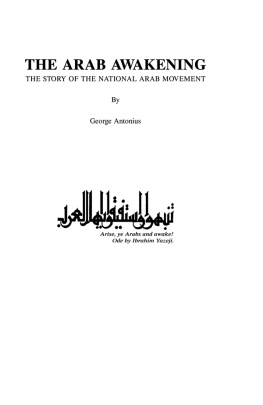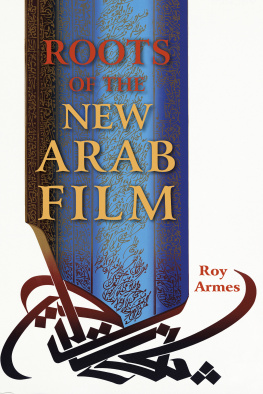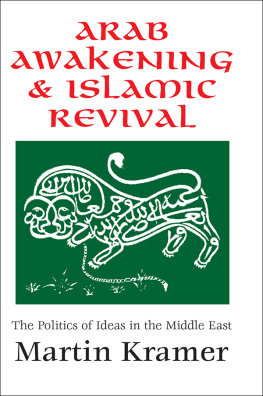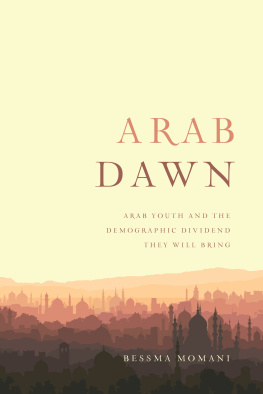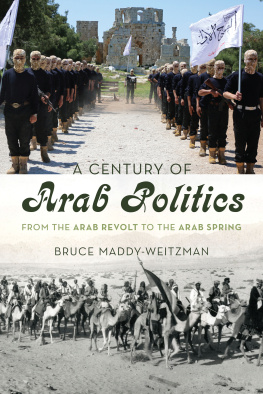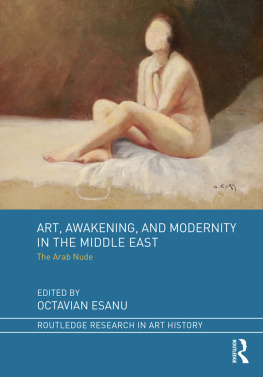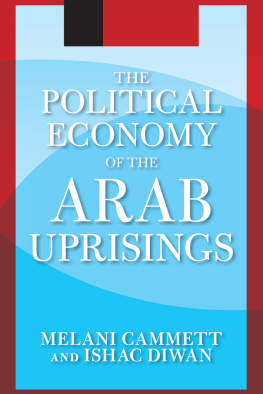Antonius - The Arab awakening: the story of the Arab national movement
Here you can read online Antonius - The Arab awakening: the story of the Arab national movement full text of the book (entire story) in english for free. Download pdf and epub, get meaning, cover and reviews about this ebook. City: London, year: 2000;2001, publisher: Taylor and Francis;Kegan Paul International, genre: Detective and thriller. Description of the work, (preface) as well as reviews are available. Best literature library LitArk.com created for fans of good reading and offers a wide selection of genres:
Romance novel
Science fiction
Adventure
Detective
Science
History
Home and family
Prose
Art
Politics
Computer
Non-fiction
Religion
Business
Children
Humor
Choose a favorite category and find really read worthwhile books. Enjoy immersion in the world of imagination, feel the emotions of the characters or learn something new for yourself, make an fascinating discovery.
- Book:The Arab awakening: the story of the Arab national movement
- Author:
- Publisher:Taylor and Francis;Kegan Paul International
- Genre:
- Year:2000;2001
- City:London
- Rating:5 / 5
- Favourites:Add to favourites
- Your mark:
- 100
- 1
- 2
- 3
- 4
- 5
The Arab awakening: the story of the Arab national movement: summary, description and annotation
We offer to read an annotation, description, summary or preface (depends on what the author of the book "The Arab awakening: the story of the Arab national movement" wrote himself). If you haven't found the necessary information about the book — write in the comments, we will try to find it.
Antonius: author's other books
Who wrote The Arab awakening: the story of the Arab national movement? Find out the surname, the name of the author of the book and a list of all author's works by series.
The Arab awakening: the story of the Arab national movement — read online for free the complete book (whole text) full work
Below is the text of the book, divided by pages. System saving the place of the last page read, allows you to conveniently read the book "The Arab awakening: the story of the Arab national movement" online for free, without having to search again every time where you left off. Put a bookmark, and you can go to the page where you finished reading at any time.
Font size:
Interval:
Bookmark:
The Arab Awakening
First published in 1938, this fine book is the first study of the Arab national movement ever written. The whole of this brilliantly written book moves at the same plane of objective and critical scholarship. Daily Telegraph, London. A good book written by a scholar, an expert on the subject and a resident in the countrya very excellent and extremely able book. The Observer, London.
GEORGE ANTONIUS was a scholar and expert on the Middle East.
THE ARAB AWAKENING
THE STORY OF THE ARAB NATIONAL MOVEMENT
by
GEORGE ANTONIUS


First published in 2002 by
Kegan Paul International
This edition first published in 2010 by
Routledge
2 Park Square, Milton Park, Abingdon, Oxon, OX14 4RN
Simultaneously published in the USA and Canada
by Routledge
711 Third Avenue, New York, NY 10017
Routledge is an imprint of the Taylor & Francis Group, an informa business
Kegan Paul International, 2000
All rights reserved. No part of this book may be reprinted or reproduced or utilised in any form or by any electronic, mechanical, or other means, now known or hereafter invented, including photocopying and recording, or in any information storage or retrieval system, without permission in writing from the publishers.
British Library Cataloguing in Publication Data
A catalogue record for this book is available from the British Library
ISBN 10: 0-7103-0673-3 (hbk)
ISBN 13: 978-0-7103-0673-9 (hbk)
Publishers Note
The publisher has gone to great lengths to ensure the quality of this reprint but points out that some imperfections in the original copies may be apparent. The publisher has made every effort to contact original copyright holders and would welcome correspondence from those they have been unable to trace
To
CHARLES R. CRANE,
aptly nicknamed Harun al-Rashid, affectionately.
T HE object of this book is primarily to tell a story and mark its significance. It aims at giving, not the final or even a detailed history of the Arab Movement, but an account in outline of its origins, its development and the main problems it has had to face, in the form of a continuous narrative interspersed with such analysis as seemed necessary to elucidate the problems.
The story has never been told in full before. Accounts have appeared of this or that phase of the Movement; but there appears to be no work, in any of the languages with which I am acquainted, in which the story is told from the beginning, that is to say from the earliest stirrings of the Arab awakening one hundred years ago, down to the present day. Nor is there in existence, to the best of my knowledge, an account that derives its authority from an equal reference to the Arab and the foreign sources. Just as the Arabic histories rely almost exclusively on Arab sources, so the works published in the European languages will be found to have been mainly based on Western sources. It has seemed to me that there was room for a work to be drawn from both founts of knowledge, in which the texture of the story and of the problems of the Movement might be more solidly woven by crossing the woof of Arab sources and interpretation with the warp of European documentation.
The task of examining all the relevant sources has taken me several years of research in European and American libraries, and a great deal of travelling and personal inquiry in the Arab world. I have made a particular point of obtaining the testimony of persons who have had a hand in the actual shaping of the Movement or in one or other of its significant activities a task which has not been easy but which was greatly facilitated by the willingness and the helpful kindness of a large number of people, both Arab and non-Arab, whose name is legion and to whom I am deeply indebted.
I have tried to discharge my task in a spirit of fairness and objectivity, and, while approaching the subject from an Arab angle, to arrive at my conclusions without bias and partisanship. If I have failed, it is not for want of trying or for any uncertainty as to the seriousness of my responsibilities towards my readers.
It would have been impossible for me to have carried out that research had it not been for my connexion with the Institute of Current World Affairs of New York. The Institute has not participated in any form or degree in the drawing up of my conclusions, or in any sense influenced them. For these, I am wholly and solely responsible. My gratitude goes to the Trustees and the Director of the Institute, not only for the exceptional and generous facilities without which this work could not have been written, but also for the complete absence of any restriction as to time or method or freedom of expression.
I ask all those who have helped me with information and guidance, or who have otherwise facilitated my research, to accept this acknowledgement of my gratitude. It was only after I had actually begun the task of composition that I realised its difficulties. On re-reading the book in proof, it seemed to me that its only asset was that it contained certain information which was not generally known and which might be of use in the elucidation of the problems confronting the Arab world in its relations with the Powers of the West. For that, the credit goes to those who have helped me to trace it and understand its meaning.
I am also indebted to Adeline (Pixie) Newns for typing the greater part of the final manuscript and for valuable help in the correction of the proofs.
October 1938 | G. A. |
LIST OF MAPS
The maps have been drawn by Mr. Tom Wrigley.
The Arab Awakening
T HE story of the Arab national movement opens in Syria in 1847, with the foundation in Bairut of a modest literary society under American patronage.
The frequent risings and upheavals which, in the preceding three centuries, had stirred the Arab world from its torpid passivity under Ottoman dominance do not properly belong to the story. Even such movements as the rise of Fakhrud-din in Syria, the establishment of the Wahhabi power in Arabia, and the campaigns of Mehemed-Ali against his Turkish suzerain, must be relegated to the background as being isolated movements due to particular causes rather than steps in the march of an advancing Arab nationalism. For all their importance at the time, and their ultimate bearing on the destinies of Arab populations, they represent the achievements of individual genius goaded by great ambition or great faith, not the exertions of suffering idealists moved by the pride of race.
All the same, a sketch of the background to which those upheavals belong is necessary to the understanding of the story.
The geographical setting calls for definition at the start, and with it, the exact connotation of the expression the Arab world.
During the centuries which followed the rise and expansion of Islam, the term Arab gradually acquired a wider meaning. Originally, as far back as the oldest inscriptions go, pagan Arabia was inhabited by two races, of which the one, mainly nomadic, had as its roaming-ground the country comprised between the Euphrates and the centre of the Peninsula, down to the southern confines of the Hejaz and Najd; while the other, largely sedentary, had established itself in the uplands of the south, roughly corresponding to the Yaman and the Hadramaut. In its narrower ethnographical sense, the term
Next pageFont size:
Interval:
Bookmark:
Similar books «The Arab awakening: the story of the Arab national movement»
Look at similar books to The Arab awakening: the story of the Arab national movement. We have selected literature similar in name and meaning in the hope of providing readers with more options to find new, interesting, not yet read works.
Discussion, reviews of the book The Arab awakening: the story of the Arab national movement and just readers' own opinions. Leave your comments, write what you think about the work, its meaning or the main characters. Specify what exactly you liked and what you didn't like, and why you think so.

